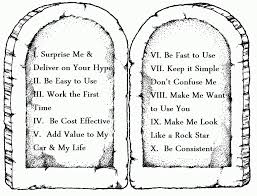Romans 3:17-18 – “…and the way of peace they have not known. There is no fear of God before their eyes.”
Welcome back to our study of Romans. In the second half of the third chapter, Paul is pressing home his point that mankind as a whole  (both Jews and Greeks/Gentiles) is essentially wicked. He is mainly pointing this out for the benefit of the Jews. They were more than happy to admit that the Gentiles were wicked, but they erroneously believed that they were justified in God’s sight because they were his people.
(both Jews and Greeks/Gentiles) is essentially wicked. He is mainly pointing this out for the benefit of the Jews. They were more than happy to admit that the Gentiles were wicked, but they erroneously believed that they were justified in God’s sight because they were his people.
It is essential that Paul breaks down that lie, so he can lead them to the truth – they need a Savior who can justify them in the sight of God.
The scriptures Paul references in verses 17-18 speak of the ignorance of mankind in knowing the way to true peace and happiness for themselves and others.
Proverbs 1:7 – The fear of the Lord is the beginning of knowledge: but fools despise wisdom and instruction.
Proverbs 3:17 – Her [wisdom’s] ways are ways of pleasantness, and all her paths are peace.
GENERAL SUMMARY: Since the fear of God is the beginning of wisdom and wisdom leads to peace, we would expect evil people to be submersed in quarreling, deceit, chaos, stupidity, contention and strife. And sure enough, this is what we find among those who have rejected God.
This overflow of corruption and suffering arises from a void – the absence of the fear of God in their lives. That makes perfect sense, because when we depart from the ways of the Lord, we have nothing to lead us into life and peace.
DIGGING DEEPER: Fear of God: In this case, the ‘fear’ Paul speaks about is not a fear of judgment and hell. Rather, fear denotes reverence, awe and veneration. It can be described as a reverential affection for God, which is peculiar to his children. It springs from a sense of divine goodness, and it manifests itself in a desire for holiness in our hearts and lives. This veneration is fully implanted within the heart of each person when they are converted or saved.
Because reverence for God springs from grace, it is never found in unbelievers. Sinners have no regard for the character, authority or honor of God. If they did, it would restrain their mouths and their actions.
Think of it this way: We use a bit and a bridle to control a horse and force it to go where we lead; it is restrained from running wild. In the same way, fear or reverence for God functions like a bit and bridle – it controls the Christian and restrains us from unbridled sin.
In the case of the sinner, we find that their mouths and actions are running wild in the wilderness of wickedness, which proves they have no reverential fear of God.
Paul’s reasoning in verses 10-18 shows that all men, if left to themselves, will exhibit utter sinfulness. This sinfulness and depravity can only be overcome by the grace of God in bestowing on us the righteousness of Christ which comes through faith.
Here is a word of caution for all of us: These seeds of sin are still within the lives of the righteous. They can sprout and grow at any time, unless we continuously mortify our flesh/circumcise our hearts with the help of Holy Spirit. 
Before their eyes: When something is ‘before your eyes’, it can be plainly seen and identified. For example, if you were on a walk and you came across a mud puddle, it would be plainly visible. You would be able to identify it. You would have the choice of walking around it or stepping into it.
When Paul says the fear of God is before the eyes of the wicked, he is indicating that man has the choice/free will to embrace or reject God. His moral conduct reflects the choice he makes. Again, mankind as a whole gravitates towards total wickedness and corruption.
Whether they want to admit it or not, this includes the Jews. By no less than six distinct quotes from different periods in their national history, Paul shows that, despite having the oracles of God, the character of the Jewish nation was far from being righteous. In fact, it was just as corrupt as the heathen nations.
Obviously, there is no way they could be justified by their own works. Therefore, it logically follows that a Jew could NOT hope to be saved simply because he was a Jew. He was in the exact same predicament as the Gentiles – he needed a Savior.
Romans 3:19 – Now we know that whatever the law says it speaks to those who are under the law, so that every mouth may be stopped, and the whole world may be held accountable to God.
GENERAL SUMMARY: The Jews believed that they were justified before God because they had his laws and commands. But Paul will show that the very law they trusted in condemned them in God’s sight.
DIGGING DEEPER: Now we know: Paul now begins to steer his readers toward a logical conclusion; he is about to make a point which they (the Jews) must absolutely admit/concede.
Whatever the law says: In other words, whatever is found in the whole of the Old Testament, whether historical facts or commands from God.
It speaks to those who are under the law: In some ways, the Jews were masters of deflection. They might object that the writings quoted by Paul concerned only the impure gentiles and therefore did not concern or apply to them. In order to prevent that from happening, Paul calls attention to the fact that the law speaks specifically to those to whom it was given. It may indeed speak to all, but it definitely speaks with authority to those to whom it was addressed – the Jews!
The Jews correctly considered the law to be divine. Therefore, it was not only the absolute truth, it also carried divine authority. The Jews also freely admitted (and even bragged) that the law was given exclusively to them. Given these facts, they cannot evade or ignore or deflect the logical conclusions that Paul brings forth in his letter.
That every mouth may be stopped: The argument for the sinful state of the Jews as shown by numerous Old Testament passages was so clear and so obvious that no excuse or objection could be given to the contrary. The Jews could not deflect their guilt; all rebuttals and objections would be silenced.
And the whole world be accountable to God: The Greek word for accountable (guilty) is another technical term associated with a court of law. It indicates that the defendant (mankind/the whole world) has failed to vindicate or successfully defend himself in trial. Therefore, the defendant is found guilty of all charges. Mankind has broken the law and as it stands, he (mankind) will receive the punishment he justly deserves.
Thus, Paul reaches his intended conclusion: Both major divisions of mankind are guilty before God and are subject to his judgement.
- The Gentiles were proved guilty of sin by actions which violated the laws of nature and of their own consciences.
- The Jews were proved guilty of sin by the divine authority of their own laws – arguments and historical facts taken from the truth of the Old Testament.
Romans 3:20 – For by works of the law no human being will be justified in his sight, since through the law comes knowledge of sin.
GENERAL SUMMARY: The law is not the protection and shield that the Jews thought it was. The purpose of the law is to identify and establish the universal guilt/sin of mankind. This should lead to the understanding that a Savior is needed to justify man before God.
DIGGING DEEPER: By works of the law: Bible commentators do not agree on Paul’s use of the ‘law’ in this verse. While some believe he speaks of moral law, others believe he means the law of Moses. But realistically, there is a third option – he meant both.
In the mind of Paul’s Jewish audience, fidelity to the law (both moral and ritual/ceremonial) was the full scope of their moral obligation. Essentially, they would not have made a distinction between the two, like we do today. Therefore, it would be correct to assume Paul meant both.
No human being will be justified in God’s sight: We take this concept for granted, but back in the early days of the church this was a very strong, very bold and very powerful statement. It reflects the absolute universality of Paul’s doctrine – NO ONE will be found to have perfectly kept the law and thus be entitled to the rewards of obedience and justification by their own works.
Galatians 3:10 – For all who rely on works of the law are under a curse; for it is written, ‘Cursed be everyone who does not abide by all things written in the Book of the Law, and do them.’
Since through the law comes knowledge of sin: Remember, the Jews believed that possession and knowledge of the law guaranteed them justification. But Paul explains that cannot be the case.
The law brings us a knowledge of sin by showing us God’s righteous decrees and how we have deviated from them. When the Gentiles were compared to the law of nature and when the Jews were compared to the written law, the outcome in both cases was a clear proof of guilt. The law was not a source of justification.
Psalms 143:2 – Enter not into judgment with your servant, for no one living is righteous before you [God].
Once the law shows that we have deviated from its righteous demands, it automatically sentences us to the proper penalty - death. Obviously, the law itself has no power to save.
The law does not produce the benefit of justification before God like the Jews believed. However, it does provide an entirely different benefit – by bringing an understanding of sin, it draws mankind’s attention to the fact that they need a means of justification before God – they need a Savior.
Think of it this way: We may draw a line that seems to us to be perfectly straight. But if we take a ruler or a straight edge and draw a truly straight line on top of the one we already drew, it will reveal the crookedness/curvature of the line we thought was straight. What looked good is now clearly revealed as being faulty. In the same way, the moral failure of human actions can only be determined by the law of God which proceeds from his own perfect holiness.
Romans 3:21 – But now the righteousness of God has been manifested apart from the law, although the Law and the Prophets bear witness to it…
GENERAL SUMMARY: Having spent almost three chapters proving that all men (both Jew and Gentile) have no hope of justification in God’s  sight by keeping the law, Paul now offers a solution to the problem – justification apart from the law; justification by faith through the imparted righteousness of Jesus Christ.
sight by keeping the law, Paul now offers a solution to the problem – justification apart from the law; justification by faith through the imparted righteousness of Jesus Christ.
DIGGING DEEPER: But now: Paul has gone to great lengths to prove, beyond a shadow of doubt, that neither Jews nor Greeks/Gentiles can be justified by the works of the law. Man’s supposed righteousness is nothing but filth in God’s sight.
Now that Paul has made that case and proved the guilt of all mankind, he circles back to his original statement in Romans chapter one:
Romans 1:16-17 - For I am not ashamed of the gospel of Christ: for it is the power of God unto salvation to every one that believes; to the Jew first, and also to the Greek. For in it is the righteousness of God revealed from faith to faith: as it is written, the just shall live by faith.
Paul proceeds to show that God made a way where we could not; he has provided an avenue for mankind to be justified in his sight, while simultaneously fulfilling the full penalty of death required by the law.
That avenue is justification by faith in Jesus Christ, where the righteousness of Christ is transferred to us and the penalty of our sin is transferred to him. This is the core doctrine of the book of Romans. Paul will spend the rest of the letter/book fully proving and illustrating this doctrine.
Paul tells his readers that God has done this (opened the avenue of justification) ‘now’. ‘Now’ reflects a time frame consistent with the history of the world as divided into periods. There was a period before the law, then the era of the law, and afterward the era of the gospel (also referred to as the age of grace).
The gospel era is the ‘now’ that Paul mentions in verse 21. That age came into being with the death and resurrection of Christ and it still continues today. It will end on the day when Christ returns to the world to rapture his saints away (Ephesians 1:10, Acts 17:30-31, Hebrews 1:1-2).
The righteousness of God: This does not refer to righteousness as one of God’s attributes. Paul uses the phrase ‘righteousness of God’ to mean God’s plan for making mankind righteous. We commonly refer to it as the plan of salvation.
Remember, God’s holiness will not allow him to ignore or overlook sin. The penalty for it must be paid. In God’s plan of salvation, God can freely justify a sinner who believes in Christ because Jesus has fully met the penalty that the law demands.
Has been manifested apart from the law:
The method of justification which God has appointed for man is completely separate from the law (natural, ceremonial or moral). Jew and Gentile alike will be justified by faith in Christ. This means that now there is no difference between Jews and Gentiles.
Ephesians 2:14 – For he [Jesus] is our peace, who hath made both one, and hath broken down the middle wall of partition between us…
Now, everyone is simply a sinner who can be saved by grace (yay!). This concept is normal for us, but it was a real stumbling block to the Jews of Paul’s day.
Understandably, they had a very difficult time believing that there was no longer a difference between Jews and Gentiles. This is another topic that Paul will address throughout the remainder of his letter.
Although the Law and the Prophets bear witness to it: Strictly speaking, the Law was contained in the Pentateuch, the first five books of the Old Testament. The Prophets generally entails the remainder of the Old Testament. So the phrase ‘the Law and the Prophets’ is used many times in scripture to mean the entire Old Testament (Matthew 5:17, 11:13, Acts 13:15, 28:23, etc.).
The point is that whether they realized it or not, justification by faith in Christ Jesus was not a new doctrine – it was found in multiple ways and in multiple passages in the Old Testament:
Habakkuk 2:4 - …the righteous shall live by his faith.
(See also Genesis 3:15, 15:6, Isaiah 53, Jeremiah 31:31-33, John 5:46-47). Paul will weave these instances into his arguments throughout the remainder of his letter.
Paul makes this statement with particular regard to the Jews. He wants them to know that this is not some new belief system that was against the teachings of the law. Rather, it was the ultimate fulfillment of it which had been declared in their own sacred writings.
Matthew 5:17 – Do not think that I [Jesus] have come to abolish the Law or the Prophets; I have not come to abolish them but to fulfill them.
In other words, salvation by faith was God’s ultimate plan from the beginning!
Let me offer you some encouragement:
Hopefully, one of the things you noticed from the third chapter of Romans is that everyone is a sinner. I admit that isn’t a wonderful, encouraging, feel-good thought.
Nevertheless, it is entirely essential that each sinner comes face-to-face with the reality that our sin makes us an abomination in God’s  sight. Those who face that realization will instantly be convicted of their sin. They will repent and eagerly embrace the sacrifice of Christ which leads to salvation.
sight. Those who face that realization will instantly be convicted of their sin. They will repent and eagerly embrace the sacrifice of Christ which leads to salvation.
However, if a sinner considers themselves a ‘good’ person, who isn’t perfect but hasn’t committed any ‘big’ sins, they have no motivation to seek salvation. Without a true understanding of their sin, they risk an eternity without Christ.
So as you share the love of Christ with others, don’t be afraid to lovingly tell the whole truth – sin carries a penalty that must be paid either by Christ or by the sinner.
Let me offer you some relief and some strength:
As humans, we tend to assign different levels of depravity to different sins. In our estimation, some sins like ‘little white lies’ are no big deal, but other sins like murder are abominable. (Of course, in God’s eyes, that is not the case. Even the slightest infraction of the law will result in death.)
You may have committed a sin that society considers the worst of the worst, but if you have truly repented, you are forgiven!
Even though you’re forgiven, don’t be surprised to find that Satan comes to you at different times to remind you of what you’ve done and to bring you a load of guilt and shame. When that happens, give yourself some relief and strength – don’t accept Satan’s delivery!
You know full well that when God forgives you, you are fully acquitted of all charges. You are completely released from the bondage/incarceration of guilt and shame.
When Satan comes calling, sing him away with songs of praise and worship to God. Reject his delivery with scriptures that speak of your forgiveness. You can also remind him of what his future holds – eternity in the lake of fire, prepared for him by God himself!
Remember, whoever the Son sets free is free indeed – no matter what sin they have committed (John 8:36)!































 between two people when at least one of them is married to someone other than their partner.
between two people when at least one of them is married to someone other than their partner. 
 been understood that every oath/covenant was made in the presence of God. He was the witness to the agreement, and it was up to him to avenge misconduct. Even today, when a witness gives testimony in a court of law, they are ‘sworn in’, which alludes to the fact that God is listening to their testimony, and he will avenge any wrong that is done.
been understood that every oath/covenant was made in the presence of God. He was the witness to the agreement, and it was up to him to avenge misconduct. Even today, when a witness gives testimony in a court of law, they are ‘sworn in’, which alludes to the fact that God is listening to their testimony, and he will avenge any wrong that is done. 